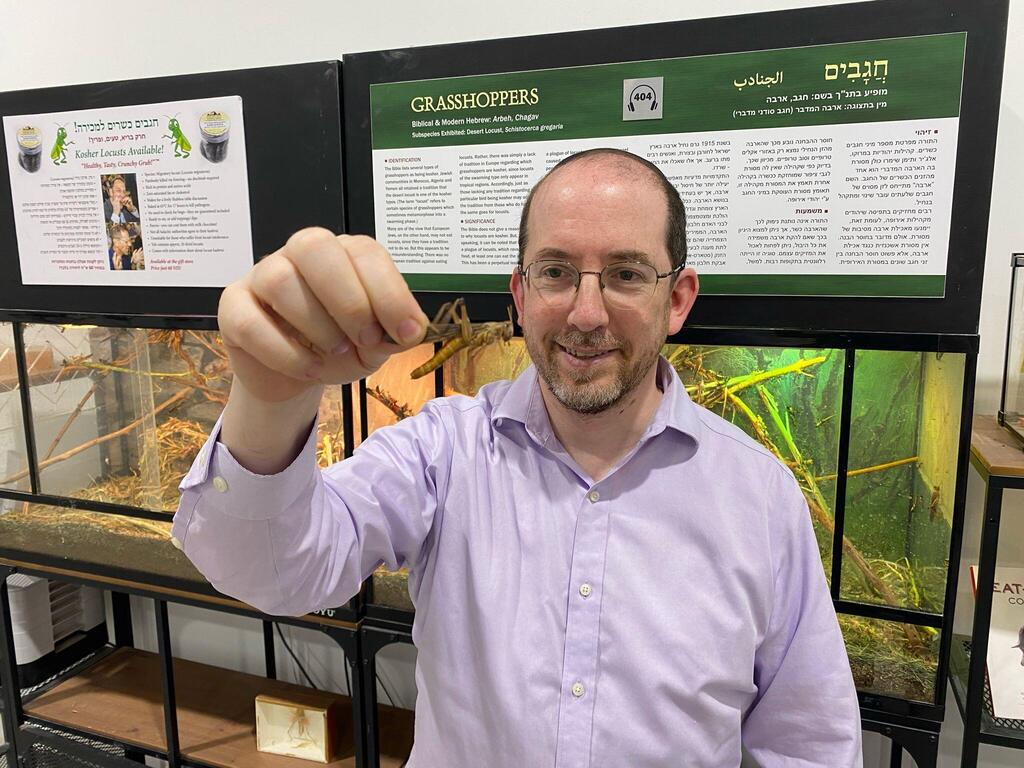Tucked among ancient artifacts and taxidermied beasts at the Biblical Museum of Natural History, visitors can now snap up a most unexpected keepsake: a kosher box of 12 locusts for 16 shekels.
Founder Rabbi Dr. Natan Slifkin, who opened the museum about a decade ago after relocating from Manchester, England, envisioned a space where the animals of the Bible come vividly to life. “Locusts feature in the biblical account as one of the plagues,” he said. “Here, you not only see them up close—you can taste them, too.”
Get the Ynetnews app on your smartphone: Google Play: https://bit.ly/4eJ37pE | Apple App Store: https://bit.ly/3ZL7iNv
Under Jewish dietary law, certain swarms of migrating grasshoppers qualify as kosher—and are classified as parve, meaning they may accompany either meat or dairy dishes. Slifkin notes that locusts are rich in protein and contain no saturated fats or cholesterol. “The flavor often reminds people of chicken,” he said, adding that the museum ships its locust boxes overseas, where recipients frequently call them “the most unique gift” they’ve ever received.
For families with younger children, two archaeology-themed board games have become popular spin-offs at local toy and gift shops:
- Pharaoh’s Treasures – Archaeological Excavations by Creativity Games: Players aged 6 and up roll dice to unearth hidden figures and race to claim ancient artifacts. It sells for 60 shekels.
- Pharaoh’s Code by IsraToys: Also for ages 6 and up, this puzzle game challenges players with 75 riddles as they use decoding boards, game cards and a solution booklet to crack an ancient mystery. It’s priced at 80 shekels.



